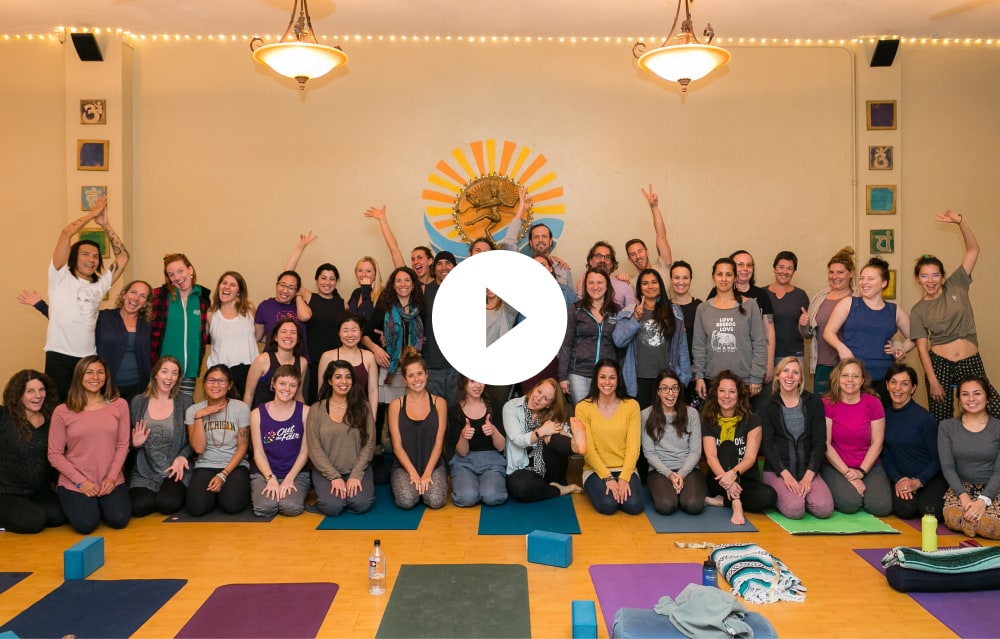JOIN PRISON YOGA PROJECTBecome a Trauma-Informed Yoga Facilitator
Bringing yoga and embodied mindfulness practices to incarcerated people can be one of the most rewarding endeavors a person can undertake. Becoming a trauma-informed yoga facilitator takes commitment, skill, and deep personal practice.
We work alongside administrators, health care professionals, correctional staff, and security-conscious professionals who are themselves subject to the traumatizing nature of the environment. Facilitating yoga and mindfulness programs in this setting requires a unique skill set, knowledge base, and character.
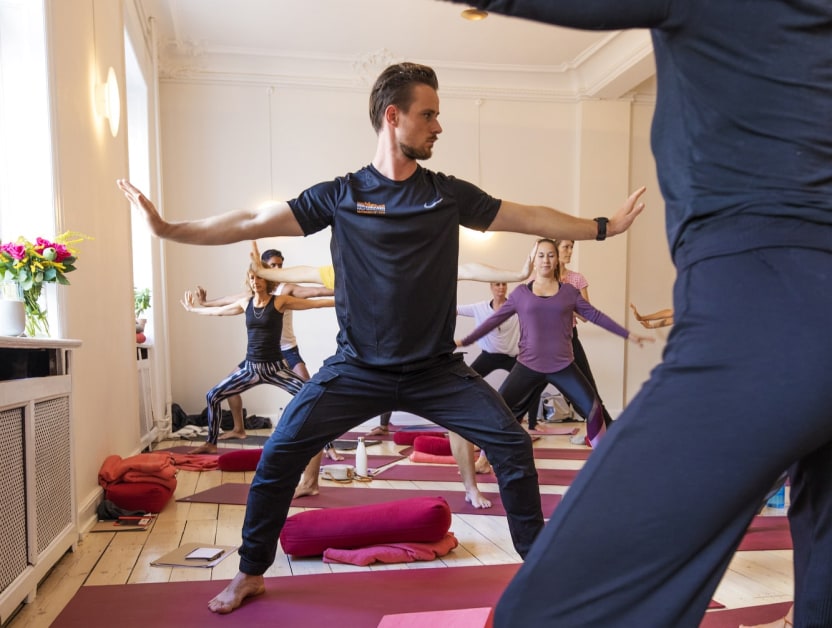
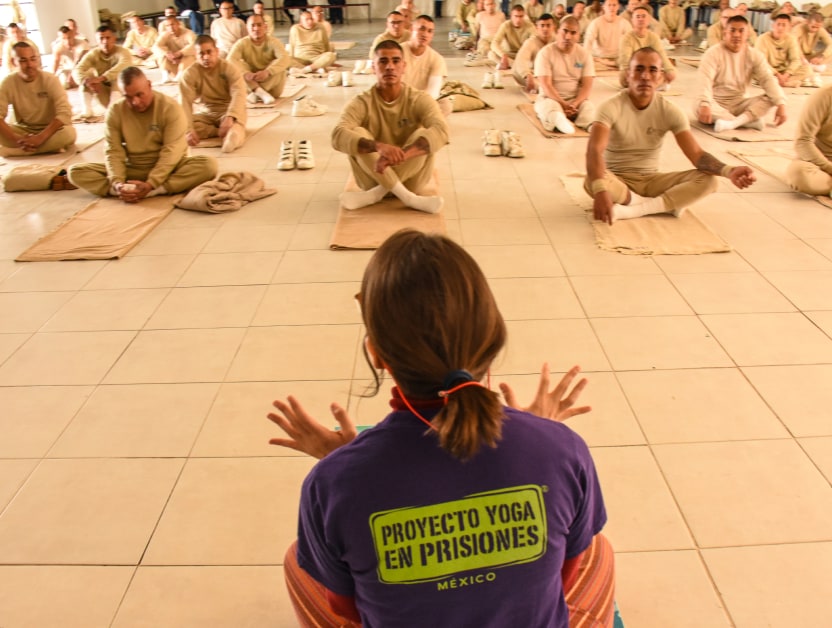
Navigating trauma and transformation in correctional environments
We operate in highly-sensitive and potentially volatile environments. We serve people who have likely suffered trauma in their lifetimes, who may have caused significant, perhaps mortal, harm to others, who live in a potentially traumatizing environment, and who deserve the best quality support we can provide.
How to Become a Facilitator

Submit Application
People who wish to become a Prison Yoga Project Facilitator can begin the process by completing our online application. Anyone who has completed a yoga teacher training program may apply. We value lived experience, experience working with incarcerated people or similar groups. We welcome certified yoga therapists, Solmatic Experiencing Practitioners, or mental health professionals with training in somatic modalities and candidates who have advanced training in trauma-informed yoga. We expect Facilitators who have not completed training with PYP to do so at the earliest convenience upon acceptance.
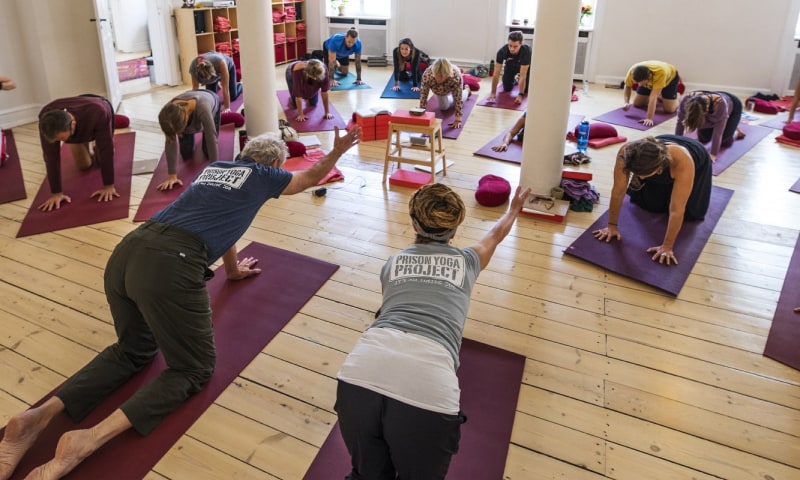
Take Training
We recommend that people take Prison Yoga Project’s Foundational Training before applying to become a trauma-informed yoga Facilitator. Attending this training will help interested people clarify what this work is and what it is not. It will orient them to our mission, philosophy, and methodology. It will provide an informed foundation for deciding whether or not to apply to become a Prison Yoga Project Facilitator. Attending training, however, does not guarantee a person a position as a Prison Yoga Project Facilitator.
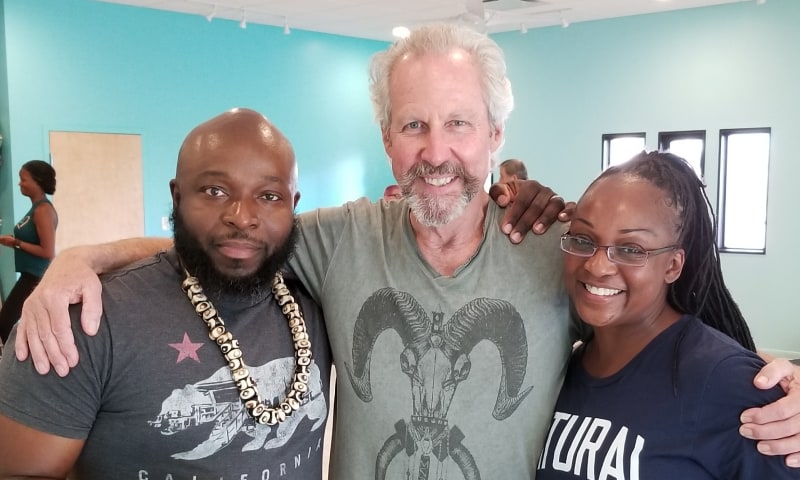
Review & Interviews
Once an application is complete, our team reviews it in consideration of the applicant’s qualifications, the need for facilitators in specific areas, and our capacity to onboard new facilitators or explore new opportunities to initiate a program. We will work with the applicant to schedule an initial interview following this review.
We look forward to reviewing your application!
Frequently Asked Questions
How do I submit my hours for Yoga Alliance Continuing Education credit?
You may use our courses for Continuing Education credit for Yoga Alliance. Please click this link for step by step instructions.
Do I have to be a yoga teacher/therapist or meditation teacher to attend your Foundational Training?
The training is open to anyone interested, regardless of experience or training. To work with us as a facilitator, we require a 200-hour yoga teacher training certification or extensive experience teaching yoga and/or mindfulness. Due to the sensitive nature of our work, we screen, so not everyone who attends the training is guaranteed an opportunity to work with Prison Yoga Project as a facilitator; however, there are many other ways to engage.
Do you offer scholarships for your training?
We offer a tiered-pricing model with Community, Supported, and Benefactors levels. For people who can afford to pay a little more, the extra you give covers a part of the cost for those who cannot.
For those with constrained finances, we also offer scholarships. Scholarship applications are evaluated based on economic need, identification with a disproportionately impacted group by trauma and incarceration, and the likelihood of applying the knowledge and skills learned in service to the community.
You will find the scholarship application here.
What if I have more questions about being a trauma-informed yoga facilitator?
If you have any questions, feel free to contact us.

